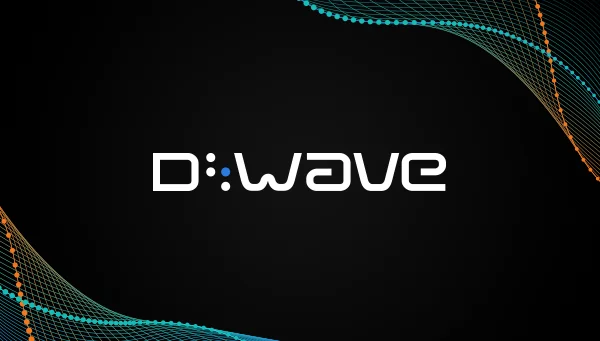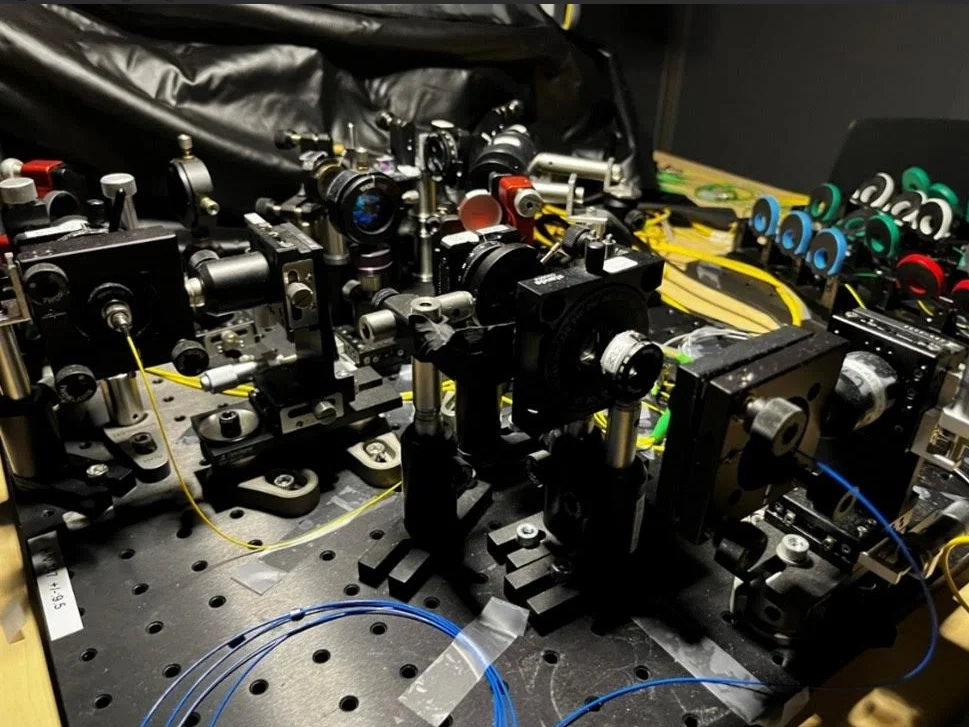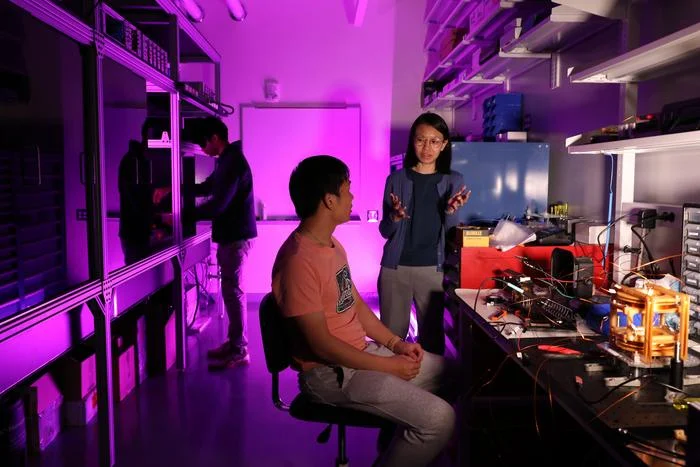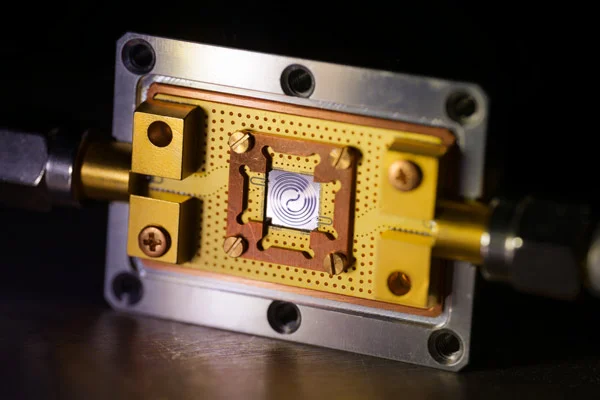It’s in The Whiskey, Laddy
Innovation and entrepreneurship is an inherent Scottish trait. Some of the greatest engineers and scientists the world has ever seen have hailed from the bonny, bonny land of glens and lochs. Men like Thomas Telford, James Watt, James Clerk Maxwell, and John Logie Baird join the great Scottish-born industrialist Andrew Carnegie in shaping the planet for the betterment of humanity.
Maybe it’s the water.
Or the whiskey.

Or sheer luck.
I suppose, though, it’s the work ethic that has played a huge part.
M Squared Lasers
Started way back in 2006 (a long time in quantum computing terms), Scottish company M Squared Lasers hopes to innovate in the space and turn its products into commercially viable applications.
‘M Squared creates the world’s purest light, enabling new applications and industries, addressing some of society’s greatest challenges — in science, climate change & healthcare’
— M Squared
Practical quantum technology has yet to appear to the masses, but M Squared Lasers is resolute the research they are currently undertaking will produce breakthroughs in a number of areas like biophotonics and chemical sensing in the nascent industry.

A self-proclaimed ‘global leader in quantum technology’, M Squared Lasers consists of a dynamic team consisting of thirty research scientists, the majority of them holding Ph.Ds.
Hometown Boy
In charge is Dr Graeme Malcolm OBE, CEO and co-founder, and a physicist with a storied history in the industry: his interest in physics started at a young age back in secondary school in Glasgow, his hometown. After gaining an undergraduate degree and a Ph.D. on solid-state lasers in 1990 from the University of Strathclyde, he founded — with the help of cash off Scottish Enterprise — Microlase Optical Systems Ltd. It wasn’t long before the company’s efforts attracted the attention of American laser company Coherent. They bought in, eventually buying Microlase Optical Systems Ltd outright. Becoming managing director of Coherent Scotland Ltd until he left to found M Squared Lasers mid-decade — since then the company has gone from strength to strength.
‘We’re working hard to make quantum technology a reality — quantum gravimetry, accelerometry, clocks and computing.’
— M Squared Tweet, November 2019
Model Business
With offices located in Scotland and Massachusetts, as well as a sales office in Palo Alto, California, the company has all the bases covered in an organizational sense.
The technological sphere of the company’s operations focus, as their name implies, is on photonics, to the layperson, lasers. The founder and CEO’s brief is best:
‘We’re on a journey to innovate in photonic quantum technologies. And we’re really concentrating in three main technology areas: quantum technologies, biophotonics and chemical sensing using laser technology. We’re focussed on those three markets because we see that each of them has the potential to scale…’
— Dr Graeme Malcolm OBE
The laser, first called a maser, was invented in 1960 by physics genius Theodore Maiman. Used for a number of applications, the invention was made immortal in 1977 when they appeared in the form of lightsabres in George Lucas’ Star Wars.
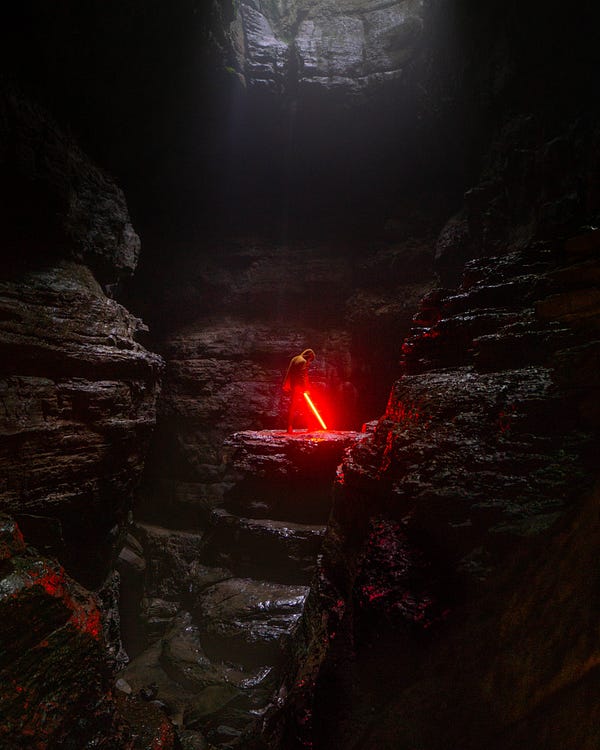
Grants Galore
Moneywise, M Squared Lasers had early funding by Scottish Enterprise and Melville Capital. In 2012, it received £3.85m in early VC money in exchange for a minority stake from the Business Growth Fund. Small cash injections in the hundreds of thousands of pounds followed. This year to date, the company got an undisclosed amount from Future Fifty as well as two grants amounting to an impressive $6.9M, almost half of it coming from a grant off the Engineering and Physical Sciences Research Council.
‘The companies [M Squared Lasers] we’ve selected are established in their chosen markets and are at the point where they can look forward to scaling up rapidly. These are incredibly talented and visionary entrepreneurs.’
— Parveen Dhanda, Future Fifty programme lead at Tech Nation
Latest revenue information, according to Tech Nation statistical sources, put it at £13.3m from 2017, with a profit of £1.7m, and a profit margin of 13%.
So things are going well for the Scottish firm, then.
The laser photonic approach to manipulating qubits already has its stable of companies and startups in the space, these include Japan’s NTT Laboratories, Quandela in France, Palo Alto-based PsiQuantum, Xanadu from Canada, and Dutch startup QuiX.












